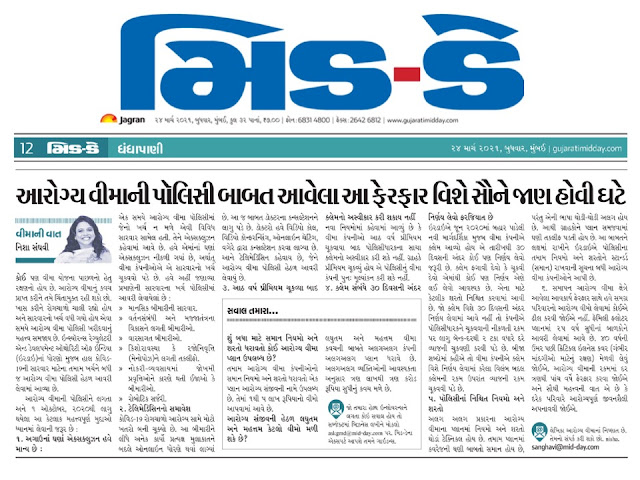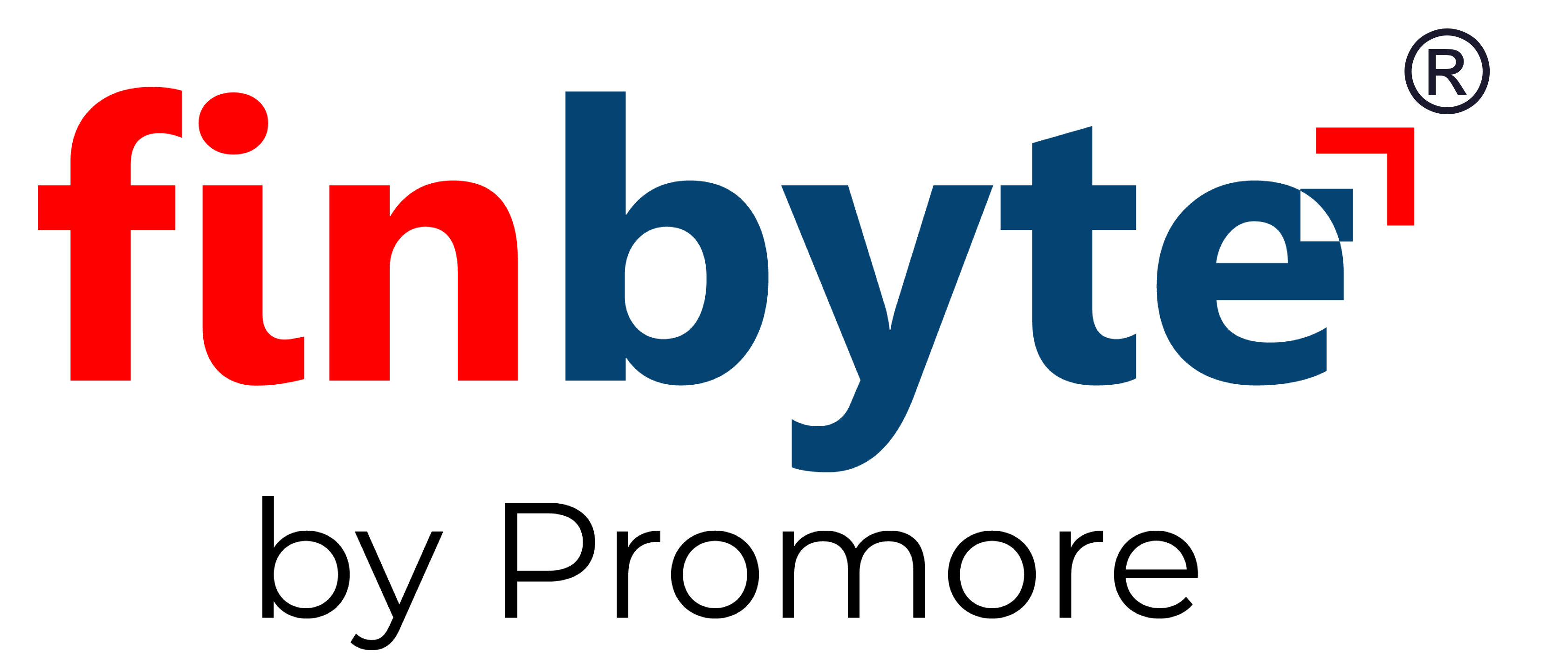
On March 24,2021 Gujarati Midday a daily newspaper by Jagaran group published my article on the major changes in your health insurance policy which one needs to know effective October 1, 2020. The article image is here for the ones who can read Gujarati and translation of the same in English is after the image for the readers, clients, friends and family.
Major Changes in your Health Insurance Policy
The core of any Insurance plan is protection. Offering protection and alleviating your risk is the simple motive of an insurance plan. Making that small investment in any health insurance plan, will enable you to be tension-free and offer security in advance. Especially when we are facing the pandemic and the rising cost of a treatment makes it although more necessary to buy a Health Insurance Plan. As per IRDA regulation, currently all the treatment cost incurred for Covid 19 are covered under all health insurance policies.
Here are the lesser known facts about a health insurance policy which are part of every health insurance effective October 1, 2020 –
1. Many Exclusions are disallowed:
Now many exclusions which were part of policies earlier are disallowed, which means that companies will have to cover them. Some of the examples are as follows.
• Treatment of mental illness
• Behavioural and Neurodevelopment Disorders
• Genetic diseases or disorders
• Puberty and Menopause Related Disorders
• Injury or illness associated with hazardous activities
• Robotic surgeries
So the coverage of the health insurance policy widens now and one will be able to get coverage for many more ailments.
2. Inclusion of Telemedicine
As the COVID pandemic continues to be a major threat, physical meetings have been replaced by virtual ones in all genres of life. The same holds true for doctor’s consultations which are increasingly being done through virtual modes like video conferencing, video calling, online chatting, etc.
This concept of medical consultations, where the doctor and the patient do not meet physically, is called telemedicine and the concept is gaining popularity in today’s troubling times.
3. No Rejection of Claim after 8 years of premium payment
The new rules also mandate the insurance companies not to reject a genuine claim after a policyholder completes eight years of paying premium. Insurers will also be not permitted to re-evaluate a policy for which the customer has paid.
4. Decision On A Claim Within 30 Days
According to the new guidelines, released by IRDAI in June 2020, insurance companies will be required to either settle or reject a claim not more than 30 days from the date of its receipt, under certain conditions.
5. Any Delay Means Interest
In case an insurer fails to decide on a claim within this period, it will be required to pay interest at a rate of 2 per cent above the applicable bank rate on the dues to the policyholder. This means if your claim gets delayed, your insurance company will also have to pay an additional amount, over and above the claim amount.
6. Standardised policy clauses Policyholder’s Concern
The terms and conditions of the different types of health insurance plans are a bit technical in nature. Though all plans have similar terms and coverage benefits, their languages might differ making it difficult for average customers to understand their meaning. Hence, comparing the health plans become quite an issue for the customer as each plan has different benefits listed with varied meanings and there is no standardisation of the same.
Thus, to make the policy clauses simplified and easily understood across the mass, the IRDAI has asked insurers to have a uniform definition of all policy clauses. The clauses should be standardised according to IRDAI’s wordings and all companies should use the same standardised wordings.
There are general standard health plans from sum insured Rs.1 lac to Rs. 5 lacs by all insurance companies called Aarogya Sanjeevani which have standard terms and conditions across insurers and then there are special curated plans for the ultra HNI’s sum insured upto Rs.3 crores.
Conclusion
One should ideally have adequate health insurance cover for not just oneself, but the entire family as well. Young families may opt for family floater health covers where children up to the age of 25 are covered. At around age 40, one may consider buying a critical illness cover. Keep reviewing the amount of coverage every 3-5 years and, more importantly, maintain a healthy lifestyle.


